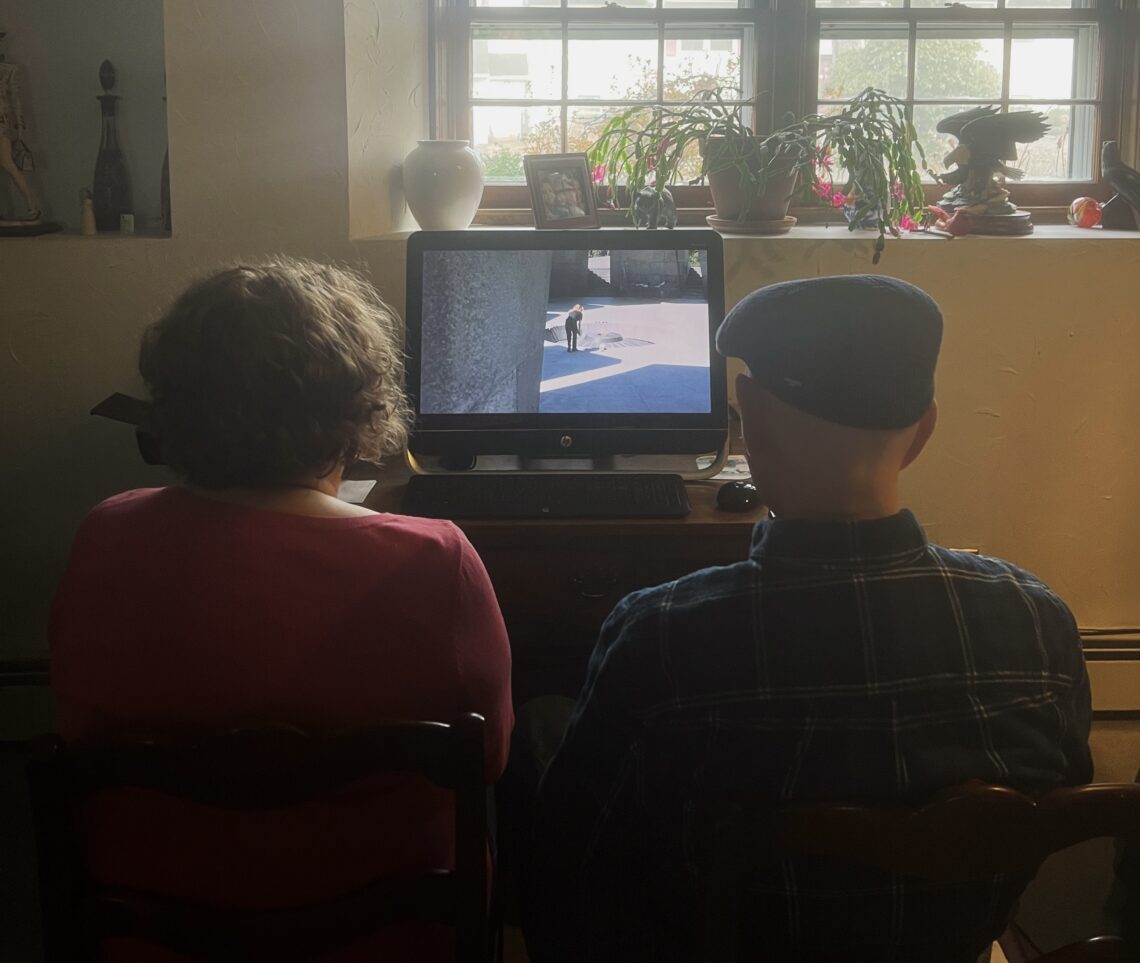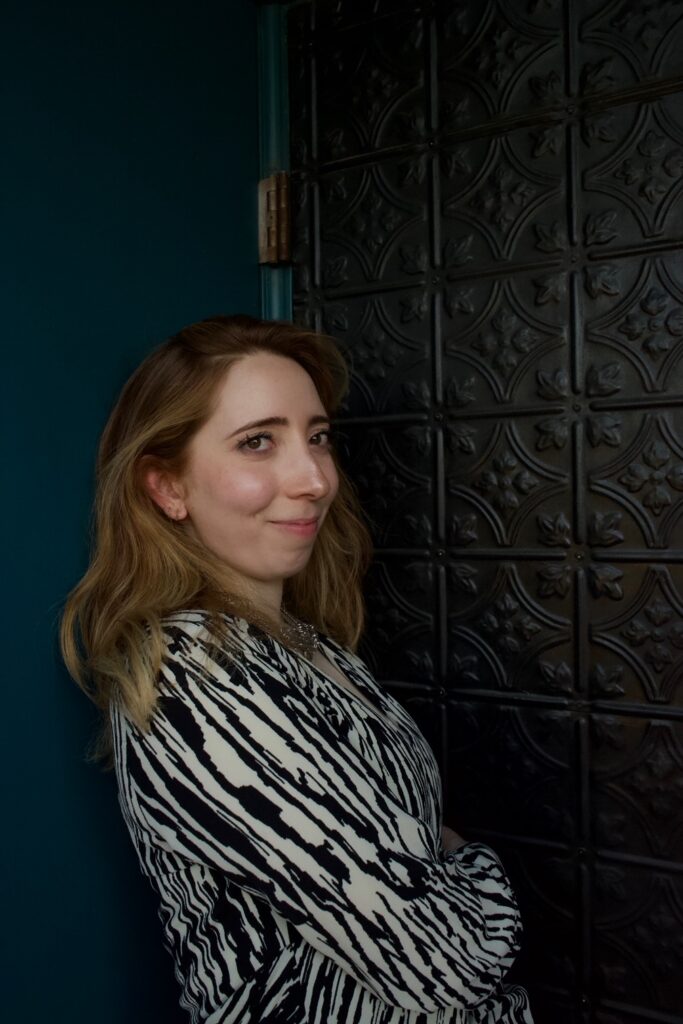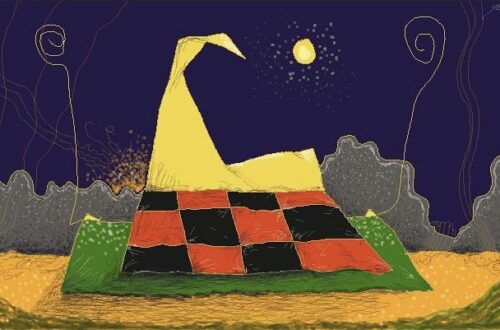
Meds Yeghern
photo collection of the author
by Alexa Luborsky
History is repeating himself again. Perhaps you didn’t hear him the first time.
He tries to begin anew but is parched—
as in prepared to be written on.
You give him ink, an equation to keep him sated like a translation.
There is no translation for Meds Yeghern into English. That is not to say that it does not exist
in the dictionaries.
Up until 2009, yeghern was translated as crime or genocide. In 2010, an Armenian-English dictionary declared it to mean calamity.
I look up translation and it means a rendering. The stock pot of bones brought to boil for the flavoring of one language into another.
The term Meds Yeghern was used by the survivors of the Armenian Genocide to try to name what had happened to them. This was before the word genocide was created in 1944 by Raphael Lemkin.
It is important to keep in mind that Meds Yeghern was only used internally, between survivors, in the place of silence. In the place of something they couldn’t express in the same language they had to live inside each day.
You may be wondering why this translation was changed in 2010 if it has been used since the 1910s.
President Obama began using the term as a way of avoiding the word genocide in his remarks on Armenian Genocide Remembrance Day in 2009. He used it 17 times in statements during his two terms. A translation was never given.
You may be wondering then, if survivors were the ones to coin the phrase for what happened to them, why would it be an issue for a sitting US President to use it?
What you are really asking is if victims should eat their own words.
Let us backtrack a bit as to why President Obama may have used the word in the first place.
In December 2008, a group of Turkish intellectuals began an apology campaign. This apology campaign involved their gathering of 30,000 signatures to effectively translate Meds Yeghern = Büyük Felâket = Great Catastrophe.
Importantly Great Catastrophe offers no special protections under international law.
When the American press covered Obama’s 2009 statement, a journalist for the New York Times offered the translation: “An Armenian term meaning ‘great calamity’” on May 6, 2009.
This translation was never questioned and became widely used.
There is another word for genocide in Armenian. It is tseghasbanutyun.
Let us give President Obama the benefit of the doubt for argument’s sake. Let us say that diminishing Turkish rhetoric to describe the Armenian Genocide wasn’t intentionally used each address of his two terms.
I still can’t help but think that questions of pronunciation, I will now translate as otherness, played a part in his choice of which Armenian words to take.
I’d like to note I don’t think this choice is conscious. Words have a way of escaping themselves.
The monument adjacent to the Armenian Genocide Museum-Institute, or the Haygagan Tseghasbanutian Tankaran-Institut, in Yerevan has been called the Meds Yegherni Hushartsan, or Memorial of the Meds Yeghern, since its unveiling in 1967.
Perhaps I should have said translations have a way of escaping themselves.
April 24th, 2021: Biden becomes the first sitting US President to use the word genocide in an Armenian Genocide Remembrance Day address.
April 25th, 2021: The banners outside of the Turkish Ambassador’s residence say Let History Decide in protest of President Biden’s use of the word genocide.
To which history replies: Who, after all, speaks today of the annihilation of the Armenians? —Adolf Hitler, Obersalzberg, 1939, in a speech given 10 days before his invasion of Poland.
To which history replies: The Turkish version is that the Armenians conspired against them as Russian spies.
To which history replies: Just as the Germans claimed the Jews committed espionage against them.
Meds Yeghern = Büyük Felâket = Great Catastrophe
Picture these words as faces, these equal signs their lips, space the intermediary. This equation, Keats’s Grecian Urn. An ode defined by the almost touch, by the proximity to the other. Neither can now exist in its body except to say it is close.
This equation is not a loving embrace. It is an embrace that recalls how easily a body is rendered an antithesis.
If we are to continue with the metaphor of the Urn, which I am not tied to, then the codification in the 2010 Armenian-English dictionary is the sintering: What happened to the Armenians = Meds Yerghern ≠ Genocide = Great Calamity
Genocide comes from the Greek prefix genos meaning race and a Latin suffix cide meaning killing. Holocaust comes from Greek and means sacrifice by fire.
The Hebrew word for the Holocaust is Shoah meaning Catastrophe.
If a word is not from the Western classical heritage, why exhume its roots to plant it there? Why risk it not taking to this unfamiliar soil?
To which history replies: protections of international law are granted in the English language.
I would like to note now that President Biden used the term Meds Yeghern interchangeably with genocide in his April 24th, 2021 address.
Let’s go back some 20 years to when the man I called zayde tells my father a story about Plaszow.
His commandant came up to him one day. He was a very fat man. So fat that his broad-
set white horse’s back sloped to meet his weight. The commandant threw him a loaf of
bread and said today is your lucky day. He then turned to the man standing next to him.
Pulled out his gun. Shoots. Not his.
I often think of this story and wonder what was sacrificed in the intermediary of my
father.
That is to say, it is not always evident when something dies. It is not always a mass grave that un-names the dead.

Alexa Luborsky is a writer of Western Armenian and Eastern European Jewish descent. Her poems have appeared in journals such as AGNI, Black Warrior Review, Guernica, and West Branch, among others. She is the 2023 Creative Writing Grant Recipient from the International Armenian Literary Alliance for her work-in-progress poetry collection on diaspora and genocidal aftermaths. Currently an MFA candidate in poetry at the University of Virginia, she serves as the interviews editor for Poetry Northwest. You can find more of her work at alexaluborsky.com.




